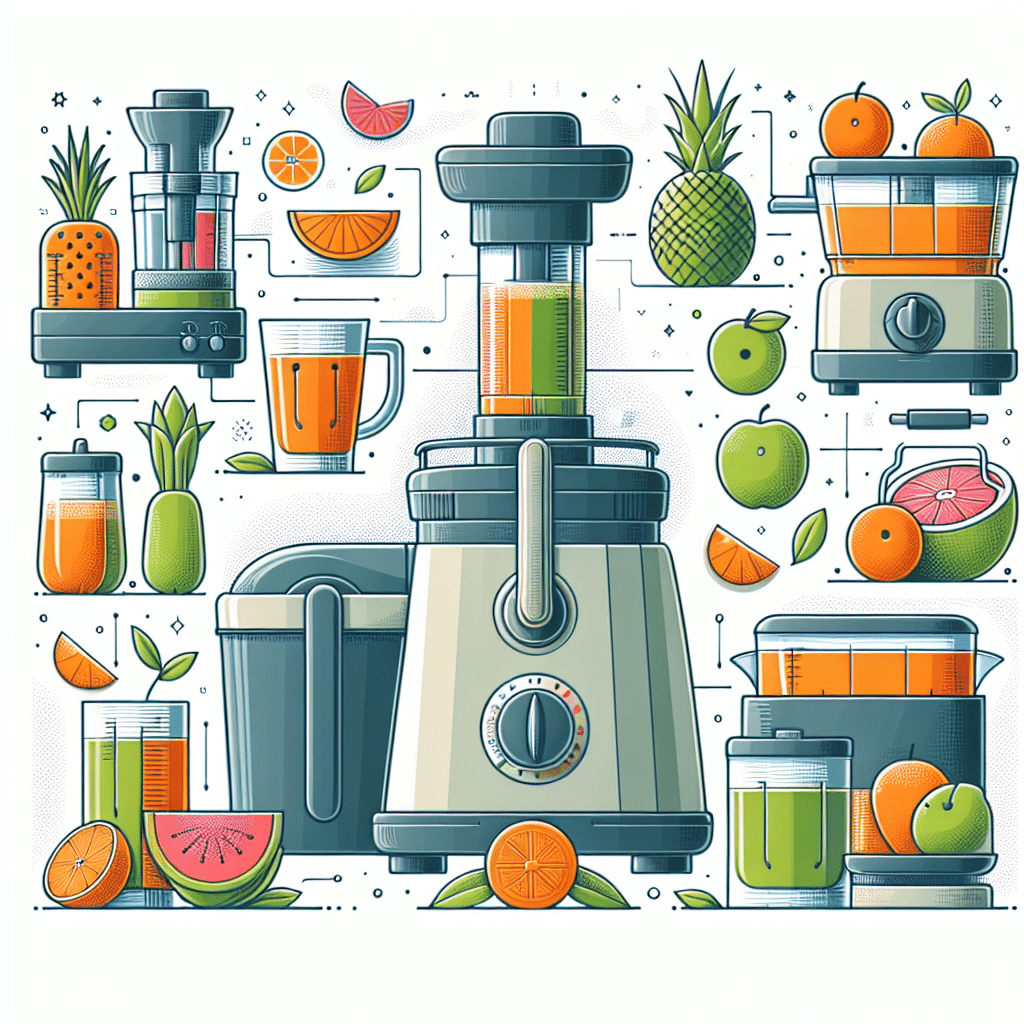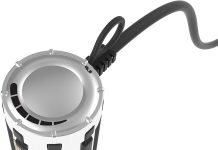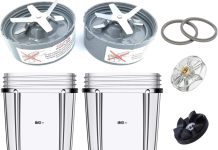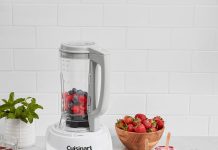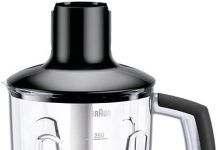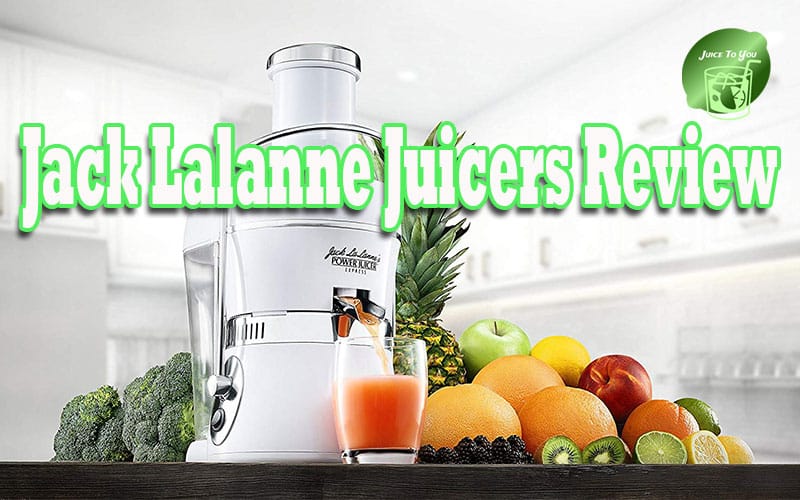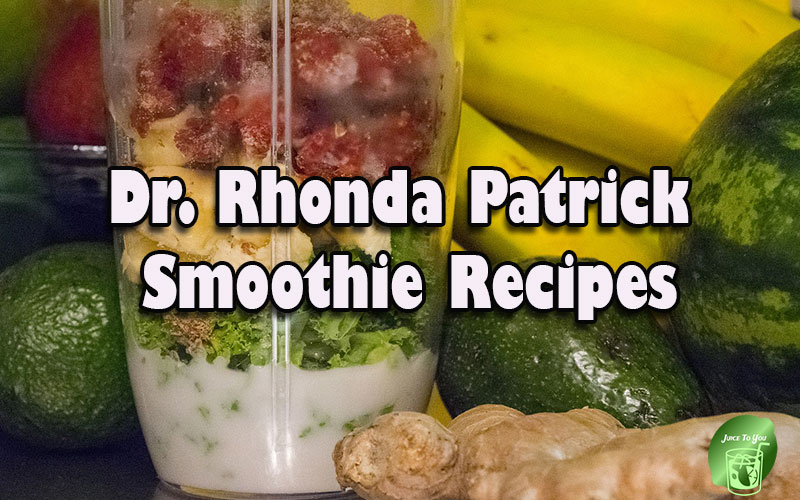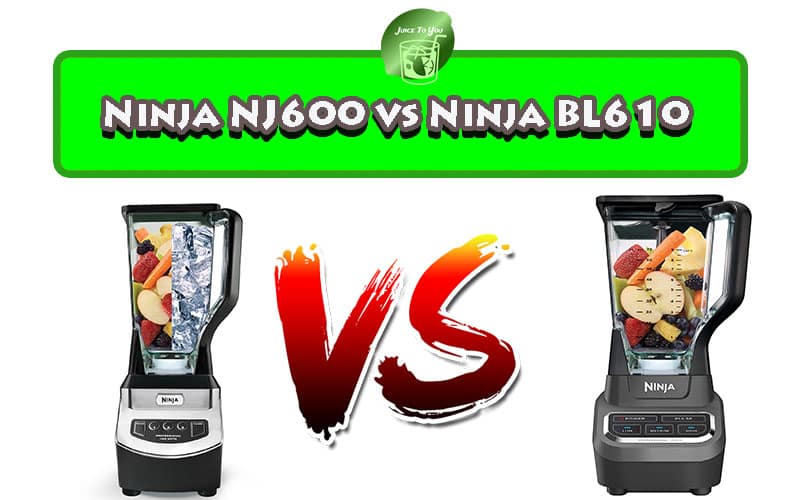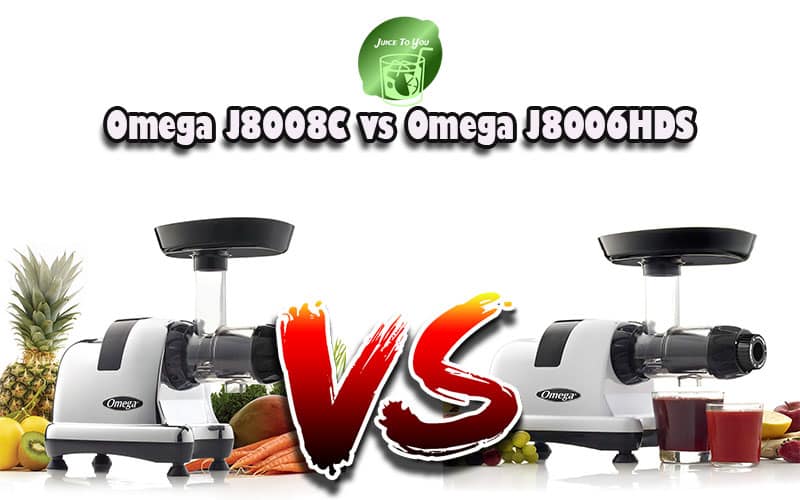If you’re looking to embrace a healthier lifestyle or simply want to enjoy a refreshing glass of juice, choosing the right juicer is crucial. With so many options available, it can be overwhelming to pick the perfect one for your needs. But fear not, because in this article, we’ll guide you through the process of selecting a juicer that fits your requirements like a glove. From considering the type of juicer to understanding its features and benefits, you’ll soon be equipped with the knowledge to make an informed decision and embark on your juicing journey with confidence. So, sit back, relax, and let’s explore the wonderful world of juicers together!
Review contents
Types of Juicers
Centrifugal Juicers
Centrifugal juicers are the most common type of juicers found on the market. They work by using a fast-spinning blade to extract juice from fruits and vegetables. These juicers are generally more affordable and are ideal for those who are just getting started with juicing. However, they do have a downside – the high-speed spinning process can introduce more oxygen into the juice, which can lead to faster oxidation and potentially reduce the overall nutrient content of the juice.
Masticating Juicers
Masticating juicers, also known as slow juicers or cold press juicers, work by crushing and grinding fruits and vegetables to extract the juice. They operate at a slower speed, which helps to minimize oxidation and promote better nutrient retention. Masticating juicers are often more expensive than centrifugal juicers, but they are known for producing higher-quality juice with a richer flavor and increased nutritional value.
Twin-Gear Juicers
Twin-gear juicers, also known as triturating juicers, are the most advanced type of juicers available. They have two gears that work together to crush and grind fruits and vegetables to extract the juice. Twin-gear juicers are known for their exceptional juice quality, high nutrient retention, and excellent juice yield. However, they are typically more expensive and require more time and effort for cleaning and maintenance. These juicers are best suited for dedicated juicing enthusiasts who prioritize maximum juice quality.
Citrus Juicers
Citrus juicers are specifically designed for juicing citrus fruits such as oranges, lemons, and grapefruits. They come in both manual and electric versions, and they are a great option if you primarily want to juice citrus fruits. Citrus juicers are generally more affordable and easier to clean compared to other types of juicers. They are the perfect choice for anyone who enjoys freshly squeezed citrus juice on a regular basis.
Consider Your Budget
Entry-level Juicers
If you’re just starting out and don’t want to spend a fortune on a juicer, entry-level juicers are a suitable option. These juicers are typically centrifugal or citrus juicers and are available at an affordable price range. While they may not have all the advanced features, they can still provide you with a decent juicing experience.
Mid-range Juicers
Mid-range juicers offer a good balance between price and features. They are often masticating juicers or higher-end centrifugal juicers. These juicers provide better juice quality and more durability compared to entry-level models, making them a popular choice among regular juicers.
High-end Juicers
For those who are serious about juicing and want the best possible quality, high-end juicers are worth considering. These juicers are usually masticating or twin-gear juicers and come with premium features such as adjustable settings, higher motor power, and improved overall functionality. While they may come with a hefty price tag, they offer superior juice quality and long-lasting performance.
Juicing Frequency
Occasional Juicing
If you plan on juicing only occasionally or as a once-in-a-while treat, a basic entry-level juicer or even a manual citrus juicer may be sufficient for your needs. These juicers are designed to handle smaller quantities and are easy to use, making them perfect for occasional juicers who don’t want to spend too much time or effort on juicing.
Daily Juicing
If you’re someone who enjoys a daily dose of fresh juice, investing in a reliable mid-range juicer is a smart choice. These juicers can handle regular use and are built to last. With their better juice quality and more efficient juicing process, they provide a convenient way to incorporate healthy juices into your daily routine.
Frequent Juicing
For those who are committed to a healthy lifestyle and plan on juicing multiple times a day, a high-end juicer is the way to go. These juicers are built to withstand heavy daily use and can handle large quantities of produce. With their superior performance and versatility, frequent juicers can enjoy the benefits of fresh, nutrient-packed juices whenever they want.
Juice Quality
Nutrient Retention
When it comes to juicing, one of the key factors to consider is the nutrient retention of the juice. Masticating and twin-gear juicers are known for their superior nutrient retention due to their slower juicing process, which minimizes heat and oxidation. On the other hand, centrifugal juicers may introduce more oxygen into the juice, potentially reducing its nutrient content.
Oxidation Levels
Oxidation can have a negative impact on the quality and nutritional value of the juice. Centrifugal juicers, with their high-speed spinning process, may cause more oxidation compared to masticating or twin-gear juicers. If you prioritize juice quality and want to minimize oxidation, it’s recommended to opt for a slower juicer.
Pulp Extraction
The efficiency of a juicer in extracting pulp from the juice can influence the overall quality of the juice. Masticating and twin-gear juicers are known for their excellent pulp extraction, resulting in smoother and pulp-free juices. If you prefer a smoother juice texture, these types of juicers are ideal.
Foam Production
Foam is a common byproduct of juicing, and its presence can impact the overall juice quality and taste. Centrifugal juicers tend to produce more foam due to the high-speed spinning blade. Masticating and twin-gear juicers, with their slower extraction process, generally produce less foam and result in a more visually appealing and smoother juice.
Ease of Cleaning
Removable Parts
The ease of cleaning a juicer is an important factor to consider, especially if you don’t want to spend excessive time and effort on maintenance. Look for juicers with removable parts that are dishwasher-safe. This makes cleaning much more convenient as you can simply detach the components and pop them into the dishwasher for a thorough clean.
Dishwasher-safe
If you want to save time and energy, opting for a juicer with dishwasher-safe parts is a smart choice. It allows you to simply place the components in the dishwasher, eliminating the need for manual scrubbing. However, it’s important to check the manufacturer’s instructions to ensure that all parts are safe to clean in a dishwasher.
Cleaning Brushes
Many juicers come with cleaning brushes specifically designed for quick and easy cleaning. These brushes are especially useful for removing pulp and debris from hard-to-reach areas of the juicer. Having a cleaning brush included with your juicer can make the cleaning process more efficient and thorough.
Time Required
Consider how much time you’re willing to spend on cleaning your juicer. Some juicers, especially centrifugal ones, have fewer parts and are generally quicker to clean compared to masticating or twin-gear juicers, which have more components. If time is a concern for you, opt for a juicer that is easy to disassemble and clean.
Motor Power and Speed
Motor Power
The motor power of a juicer determines how effectively it can process different types of fruits and vegetables. If you plan on juicing tougher produce like carrots or beets, a juicer with higher motor power will be more efficient at extracting juice. Centrifugal juicers generally have more powerful motors than masticating juicers, making them better suited for harder produce.
Motor Speed
The speed at which a juicer operates can affect the juicing process and the resulting juice quality. Centrifugal juicers have high-speed spinning blades that quickly extract juice, but the fast process can introduce more oxygen and potentially reduce nutrient retention. Masticating juicers operate at slower speeds, minimizing oxidation and producing higher-quality juice.
Impact on Juice Quality
The motor power and speed of a juicer can impact the quality of the juice. While centrifugal juicers are faster, they may not be as efficient in extracting juice from leafy greens or produce with high fiber content. Masticating and twin-gear juicers, with their slower operation, tend to handle a wide variety of fruits and vegetables with ease, resulting in better juice quality.
Juice Yield
Efficiency
The efficiency of a juicer determines how well it can extract juice from different types of produce. Masticating and twin-gear juicers are known for their high juice yield due to their slow and thorough juicing process. Centrifugal juicers, on the other hand, may not be as efficient in extracting every drop of juice, especially from leafy greens and softer fruits.
Dry Pulp
One way to gauge the efficiency of a juicer is by examining the dryness of the pulp it produces. Juicers that leave the pulp relatively dry indicate that they are extracting a significant amount of juice. Masticating and twin-gear juicers are often associated with drier pulp, indicating a higher juice yield.
High Yield Models
Some juicers are specifically designed to maximize juice yield, making them a great option for those who want to get the most out of their fruits and vegetables. These high-yield models, often masticating or twin-gear juicers, use advanced technology to ensure efficient juicing and produce more juice from the same amount of produce.
Noise Level
Quiet Operation
If you value a peaceful and quiet juicing experience, look for juicers that are designed with noise reduction features. Masticating and citrus juicers tend to operate more quietly compared to centrifugal juicers. Investing in a juicer with a quiet motor can make a significant difference, especially if you plan on juicing early in the morning or late at night.
Louder Juicers
Centrifugal juicers, due to their high-speed operation, tend to be louder compared to other types of juicers. If noise level is a concern for you, it’s worth considering a different type of juicer that operates at a slower speed and produces less noise. Keep in mind that noise levels can vary across different models, so it’s important to check the product specifications.
Noise-reducing Features
Some juicers are designed with noise-reducing features that help to minimize the sound produced during operation. These features can include insulated motors and components, as well as rubber or silicone dampeners to absorb vibrations. Investing in a juicer with these noise-reducing features can ensure a more peaceful juicing experience.
Size and Design
Counter Space
The size of the juicer is an important consideration, especially if you have limited counter space in your kitchen. Centrifugal juicers tend to be more compact and take up less space compared to masticating or twin-gear juicers, which are generally larger and require more room. Consider the available space in your kitchen and choose a juicer that fits your needs.
Portability
If you plan on juicing on the go or taking your juicer with you while traveling, portability is a crucial factor to consider. Look for juicers that are lightweight and compact, making them easier to transport. Citrus juicers, both manual and electric, are typically more portable and convenient to use outside of the kitchen.
Aesthetics
While the aesthetics of a juicer may not be the most important factor, it’s still worth considering if you want your juicer to blend in with the overall design of your kitchen. Many juicers come in a variety of colors and finishes, allowing you to choose a style that complements your kitchen decor.
Extra Features
Pulp Control
Some juicers offer pulp control features that allow you to adjust the amount of pulp in your juice. This can be particularly useful if you have personal preferences or dietary restrictions. Having the ability to customize the pulp level can enhance your juicing experience and give you more control over the texture of your juice.
Multiple Speed Settings
Juicers with multiple speed settings provide versatility and flexibility in juicing different types of produce. Being able to adjust the speed allows you to optimize the juicing process for different fruits and vegetables, resulting in better juice extraction and overall juice quality.
Juice Container Capacity
Consider the capacity of the juice container that comes with the juicer. If you plan on juicing larger quantities of produce at once, a juicer with a larger juice container will be more convenient. Having a container with a generous capacity can save you time and effort by reducing the need for frequent emptying.
Safety Features
Safety should always be a top priority when using any kitchen appliance, including juicers. Look for juicers that have safety features such as non-slip feet, a locking mechanism to prevent accidental start-ups, and overload protection to avoid motor burnout. These features ensure that your juicing experience is safe and worry-free.
Choosing the right juicer for your needs involves considering various factors such as the type of juicer, your budget, juicing frequency, juice quality, ease of cleaning, motor power and speed, juice yield, noise level, size and design, and any extra features that may enhance your juicing experience. By carefully evaluating these factors and understanding your personal preferences, you can make an informed decision and find the perfect juicer that fits your lifestyle and juicing goals. So, get ready to enjoy the goodness of fresh, homemade juice with the right juicer for you!



